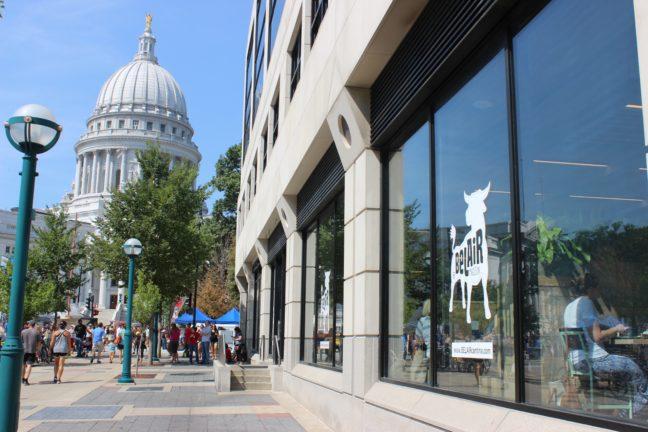If you know that the restaurant table you’re sitting at was serviced yesterday by a waiter who is out sick with COVID-19 today, would you still feel comfortable eating in that establishment? Even if the risk of contagion from that individual is unlikely, your answer is probably no.
This past summer, Gov. Tony Evers announced plans to release a list of nearly 1,000 businesses across the state of Wisconsin in which at least two employees tested positive for COVID-19.
When such a list was first announced, the backlash was swift.
Statewide business interest groups, including the Wisconsin Restaurant Association and Wisconsin Manufacturers and Commerce, filed a lawsuit against Evers Oct. 1 on the grounds that such information is private and would unfairly target already struggling businesses.
President and CEO of WMC Kurt Bauer argued in a letter sent to Evers that, “spreading misleading or outright false information will not help local public health authorities control the spread of COVID-19, or provide the public with the tools necessary to make more informed decisions.”
Though this list was in response to the hundreds of public records requests for COVID-19 information on businesses filed with the state health department over the summer, according to WRA Executive Vice President Susan Quam, releasing this list would mislead the public.
Risky Business: To stay safe on campus, Badgers must reevaluate risk, personal choices
The Wisconsin National Federation of Independent Business echoed a similar sentiment in a statement on their website that said, “Identifying the names of small businesses that had employees or customers who tested positive for COVID-19 gives the false impression that the employees or customers got the virus at their place of work or at a small business location — when that is impossible to know.”
Besides the fact these businesses would be targeted during a time when many businesses are struggling financially, the lawsuit also alleges that the release of employee health records — specifically a positive coronavirus test — violates Wisconsin law that keeps information stored in medical records confidential. In other words, releasing this list would publicize “patient-identifiable” information which includes place of employment.
Currently, the state of Wisconsin has one of the highest counts of COVID-19 cases per capita, with a seven-day positivity rate of about 10.4% as of Oct. 18. While certainly not the worst county statewide, Dane County still has an abundance of cases, with a rate of 202 out of 100,000 residents testing positive during the seven-day period prior to Oct. 18.
UW, Madison safety regulations demonstrate severe unpreparedness as new cases skyrocket
Clearly, Wisconsin is in poor shape, which is why Evers recently enacted a new set of business restrictions to help curb the spread of the virus, such as limiting indoor public gatherings to 25% capacity. Still, there are several exceptions for schools, essential businesses like grocery stores and even political rallies.
Given the business restrictions already in place prior to the current spike, local establishments have suffered during the pandemic. It’s estimated that if restaurants cannot fully open up within the next six months, about 33% statewide will close permanently without economic relief. In other words, a COVID-19 business blacklist would only intensify the financial challenges plaguing small businesses by discouraging customer turnout further.
But, we can only speculate how much money local businesses could have saved in the long run had Wisconsin enacted a full lockdown earlier and slowly reopened, instead of maintaining a steady wave of cases since May. Though students and Madison residents may feel less safe going to places in which coronavirus-infected individuals worked at or frequented prior to a positive test, we’ve all been doing that since coming to campus — we just don’t know the hard numbers behind it.
Truthfully, publicizing a list of businesses with the intent to increase awareness of the virus’s spread statewide — and to help individuals make more informed decisions when they go out — is pointless.
At this point, students and residents alike are trying to feel a semblance of normalcy in their daily lives, perhaps contrary to public health advice — myself included. I personally would not be disincentivized to go to a store in which an employee present the day before tested positive, because I currently have no way of knowing whether this is the case, yet I still go to such stores.
Unless every individual across campus and the state received a rapid test every single day, making careful decisions during a pandemic can be a game of guesswork, as we are guided by rapidly changing regulations that are more than partly catered to economic interests.
Evers’ proposed list would only provide the feeling of comfort when individuals decide to avoid one establishment, only to go to the restaurant next door instead where a server could very well be asymptomatic. Or rather, the customer making this decision could be asymptomatic.
Simply put, connecting COVID-19 cases to businesses that may or may not have been the place of infection for positive individuals fails to actually address why there is still a high rate of positive tests eight months into this pandemic. The Madison community and the rest of the state deserve better than misleading information.
Anne Isman ([email protected]) is a sophomore studying economics.














